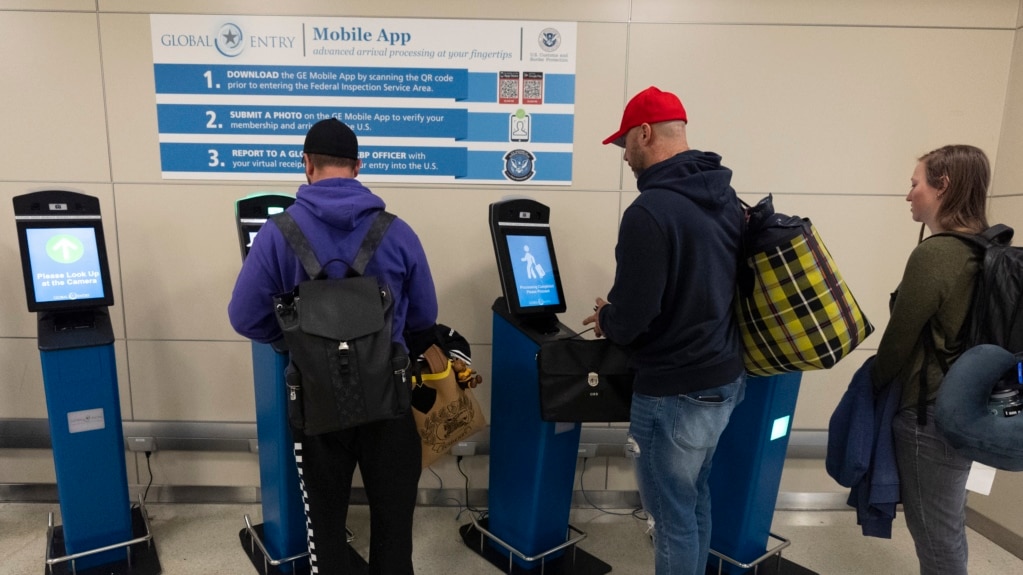Piet De Staercke of Belgium, his wife and their two sons worried about how long it would take to get through passport control at Dulles Airport in Virginia. They were just beginning their fourth visit to the United States.
“It was always a long row,” he said about the wait they experienced on earlier visits.
But this time, the De Staerckes had downloaded a new app to their phones. The app was designed to make the entry process faster.
It worked. The family passed through passport control quickly.
“…With the app, it’s amazing,” Piet De Staercke said.
U.S. Customs and Border Protection (CBP) released the app called Mobile Passport Control to improve the entry process. In the past, many solo travelers to the U.S. came for business events, so they could move through quickly. However, families with children were not so lucky.
But things are changing. Families are a growing group of travelers and video meetings have reduced the need for business travel.
CBP officials recently gave reporters a look at the new technology.
In 2023, the agency processed over 394 million travelers coming into the U.S., an increase of 24 percent over 2022. At the same time, waiting time is going down at most airports. For airports that are very busy, the wait time is up a small amount, but customs officers are seeing 30 percent more passports than before.
The app is available for Americans, permanent U.S. residents, Canadians and travelers from other countries that have agreements with the U.S. Travelers upload their information and photos to the app.
People who have the app go to a separate line for processing. An officer then will take a picture of one member of the family. A computer recognizes the image and provides all the necessary information to process the whole group.
CBP launched the app in 2021 but is now trying to get more people to use it. About 4.1 million people did so last year. The CBP said it is working with airlines to help people download the app while on their way to the U.S.
Marc Calixte is the top CBP official at Dulles Airport. He said any second helps to save time. “It adds up eventually,” he said.
There is another app for people who use Global Entry, a CBP program to ease entry for travelers it considers low-risk.
The next step for CBP may be to make an internal change that will help passengers register for Global Entry. About 3.2 million people sought to join last year, but it is a long wait for the required interview with the agency. The agency says it takes as long as six months to process requests.
This year, C.B.P. will offer about 4 million interviews. Earlier this year, American lawmakers wrote the agency to ask about the slowness of the process. They noted that the citizens they represent had been complaining about it.
Brendan Blackmer is a chief for CBP’s programs that include Global Entry. He said the agency is working to make more appointments available, to hold interviews at airports, and to make it easier for those who already have Global Entry to renew their membership.
Some travelers will face increased costs connected to the programs for easing the entry process. Global Entry for example, will rise by $20.
Other tech changes are ahead. Calixte said E-Gates will be added to some airports. That will permit those with Global Entry to move through the airport without meeting with a border agent. Down the road, Blackmer said, the app will permit the agency to sort travelers into groups ahead of time. For example, if they say they do not have anything to show an agent, they will be placed into a line that would move faster.
I’m Dan Friedell.

